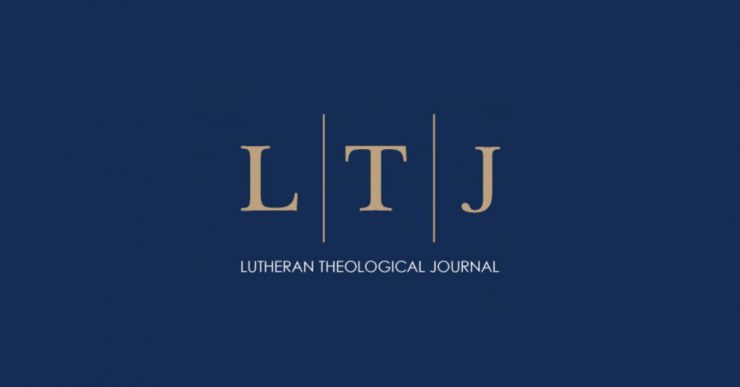Following the success of the August 2020 issue of the Lutheran Theological Journal (LTJ) on what a post-pandemic church may look like, this year the journal’s editorial team produced another themed edition in a similar format, which is out now. The new LTJ is a special on cross-cultural ministry and church life in Australasia. It features, along with a review of Meredith Lake’s book The Bible in Australia, 24 opinion pieces by church workers, who responded to the call for contributions on the overarching theme ‘Developing a multicultural mindset for the LCANZ—from a European migrant church to…’ What those personal reflections unearth is that there is an eagerness to address the opportunities and challenges arising from the changing face of Lutheran churches, schools and other agencies across Australasia.
This issue is of relevance to the whole church and demonstrates that LTJ continues to serve the LCANZ by offering a space where its workers can present a range of views that generate engagement with one another in respectful dialogue.
To become a subscriber and/or an active contributor to the journal, visit https://alc.edu.au/research/lutheran-theological-journal/.
LTJ Online
Editorial
Wendy Mayer
Editor, and Associate Dean for Research
In May we published in addition to the regular journal the first supplement to LTJ, focusing on Lutheran education and theology. Here the journal returns to a themed issue presenting personal reflections by workers across the church in Australia, New Zealand, and regionally on a topic of relevance to the contemporary church: developing a multicultural mindset. Lutheranism within Australia and New Zealand has from the very beginnings of colonisation been culturally diverse, shaped by migrants from a range of Scandinavian, northern and central European countries. Racial diversity has been low, however, and until recent decades the church’s membership and leadership has been predominantly white. As historical membership declines, a not insignificant body of First Nations Lutherans, present from the early days, is becoming increasingly visible and requiring full inclusion. At the same time, changes in global migration and refugee intake patterns are opening up mission fields that are racially, culturally and linguistically diverse. Our schools and other agencies are staffed by and serve students, clients, and communities that are multi-racial, multi-faith, and multicultural. These changes raise significant questions for Lutherans in this region. Are our approaches to ministry and mission still fit for purpose? How do we engage in ministry with each other in ways that are respectful and that take us beyond our own biases and privilege? How do we overcome discomfort on all sides and embrace being one people of God when not all of God’s children may be as like us as we are used to? And, perhaps more painful to ask: what barriers have we put in place through well-intentioned practices that result in different people and their voices being excluded?
These are all difficult questions that may not be easy to resolve or that may reveal to us disquieting truths about ourselves. And yet what the personal reflections by LCANZ church workers gathered here reveal is a common and deep desire to step into this sometimes confronting space as people of Christ called to care for all people and to share the gospel through love. There is much to think about here, including the insight that Lutheranism in Australasia is witnessing its own Pentecost moment.
This issue concludes with a review of Meredith Lake’s award-winning book, The Bible in Australia. As the reviewer shares, in this stimulating work Lake expands our view of the role of the bible in Australian history, viewing it through three particular lenses: as an artifact that is cultural, theological, and globalising (multi-author, multilingual and multicultural).
Throughout the issue we use a variety of terms to refer to our Aboriginal brothers and sisters in Christ. In consultation with Indigenous scholars about current best practice, their preference is to refer to themselves as peoples of the First Nations. This throws another element into the challenge of being a multicultural church. It acknowledges that the majority of historical LCANZ members are migrants to their country and challenges those of us who are not First Nations Lutherans to ask how as a church we have accommodated ourselves to their culture.

ALC is shaping tomorrow’s pastors, teachers, and church workers who think imaginatively about issues that affect all of life in the church and the world. They are learning to think faithfully and vitally about life and faith in the light of biblical and church teaching, and be effective spiritual leaders, educators, and workers who bring life and renewal in the church and communities they serve.
ALC provides opportunities for growth, education, and training in Higher Education and Vocational Education and Training formats, including Certificate IV, Diploma, Bachelor, Masters, and Doctoral studies.







Add comment